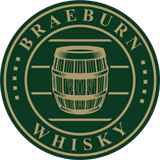The results of this year’s International Whisky Competition have just been released. Held annually in Las Vegas— although this year’s competition was moved to Colorado for social distancing measures— this competition is among the most prestigious prizes for single malt whisky. During the competition, more than 300 whiskies were blind-tasted by experts and scored using a comprehensive 100-point scale system developed to analyze the notes, flavours and mouth-feel of each whisky on the table.
Among the many whisky awards, the IWC is well regarded for the transparency and independence of the judging process and the range of whiskies under consideration. A single malt expression that emerges as a winner from the tasting panel will certainly capture the attention of the whisky lovers worldwide.
But how useful are these kind of awards for whisky cask investors? Can they help identify the casks today that will produce the award-winning whiskies of tomorrow?
Discovering The World’s Best Whiskies
In 2021, the judges at the International Whisky Competition selected Ardbeg Uigeadail for the top prize, awarding this Islay single malt a near perfect 95.9 score. Coming up close behind was Glemorangie Vintage 1997 with 95.1 points. Third place went to Ardbeg Traigh Bhan 19 (Batch 2), another exceptional single malt from the Ardbeg distillery with 93.4 points.
These three whiskies were judged to stand apart from the rest, which is testament to the excellence of the distillation and wood policies of the distilleries they came from. Therefore, investors who were lucky enough to get their hands on casks from the distilleries producing these award-winning single malts could expect to see some immediate appreciation in their investments.
Bottles vs. Casks. Where Should I Invest?
Of course, these awards encourage buyers to go out and look for bottles from the winning distilleries. However, more savvy investors will search out the casks. Why? It’s proven that whisky in the cask offers a more stable and secure investment than bottled whisky. Returns on bottles are difficult to predict. Unlike a cask, a bottle doesn’t mature with age and the flavour stays exactly the same as the bottle sits on your shelf year after year. Any appreciation in value that a bottled whisky sees is based on changes in demand for that particular release.
With casks, on the other hand, investors can hold on to their whisky until it climbs to a peak age and reap the rewards of nature’s maturation process. The majority of casks are bottled before reaching 10 years of age, so investors who keep a cask for longer have the potential to achieve higher returns. With each year that passes, the spirit becomes rarer and more coveted by collectors and enthusiasts worldwide.
Casks also give investors a higher degree of security than bottles. Held in a government bonded warehouse, whisky casks can never be forged or faked, which isn’t the case with whisky bottles—as many unfortunate investors have discovered to their cost.
Identifying The Award-Winners Of Tomorrow
When each of these whiskies was laid down in a cask for maturation, no one could have predicted that many years later they would emerge as some of the world’s best whiskies. However, there are some clues that an eagle-eyed investor could have spotted. Above all, by focusing on the distillery they came from.
As with most things in life, the reputation of a distillery rises and falls. This can be the result of aspects like the pedigree of the Master Whisky Maker, the release of a particularly fine batch or the fact that the whisky being produced manages to hit the spot in terms of current taste trends, which evolve over time. As it takes time to produce a great whisky, it’s worth looking at the patient work distilleries are doing now and forecast ahead to where they may be in five or ten years’ time when considering which casks to purchase.
- Investment. It takes considerable investment to produce and market an award-winning whisky. Look at who owns a distillery and think about its sustainability and growth projection over time.
- Heritage. There’s no doubt that experience counts. An award-winning whisky is nearly always the result of decades of trial and error, which is more likely to emerge from a distillery with a long and distinguished tradition behind it.
- Data. Choosing an award-winning whisky is a subjective process, but investors will always prefer to put their money where the data tells them to. Thankfully, today there is a lot of data around the top distilleries. For example, the BC20 Cask Index provides historic data on distillery performance, which can help investors to spot trends over time.
- Listening. Your portfolio manager has their ear to the ground and can quickly pick up inside information about where the best casks of the future are coming from. Part of the service they offer is to help their clients build robust portfolios that will appreciate over time.
Here are four golden rules that could help you to identify the award-winning distilleries of the future.
Your Cask Journey
There’s no doubt that Ardbeg Uigeadail and Glenmorangie Vintage are two whiskies to be savoured and enjoyed. Each of these single malt expressions were lovingly matured in the finest casks and bottled at exactly the right moment to reach their peak expressions and the results of that have now been recognised by the top awards at the International Whisky Competition.
One of the greatest pleasures of cask investment is owning your own a cask and tending it over time. Maybe it’s time to re-gauge to check its ABV or re-rack to enhance its flavours? Maybe you’ve reached the perfect time to sell or even to bottle? It’s impossible to know where the whisky in your cask will eventually end up, but there is a lot of pleasure—and profit to be had in the journey.
It may be time for you to start that journey today.

